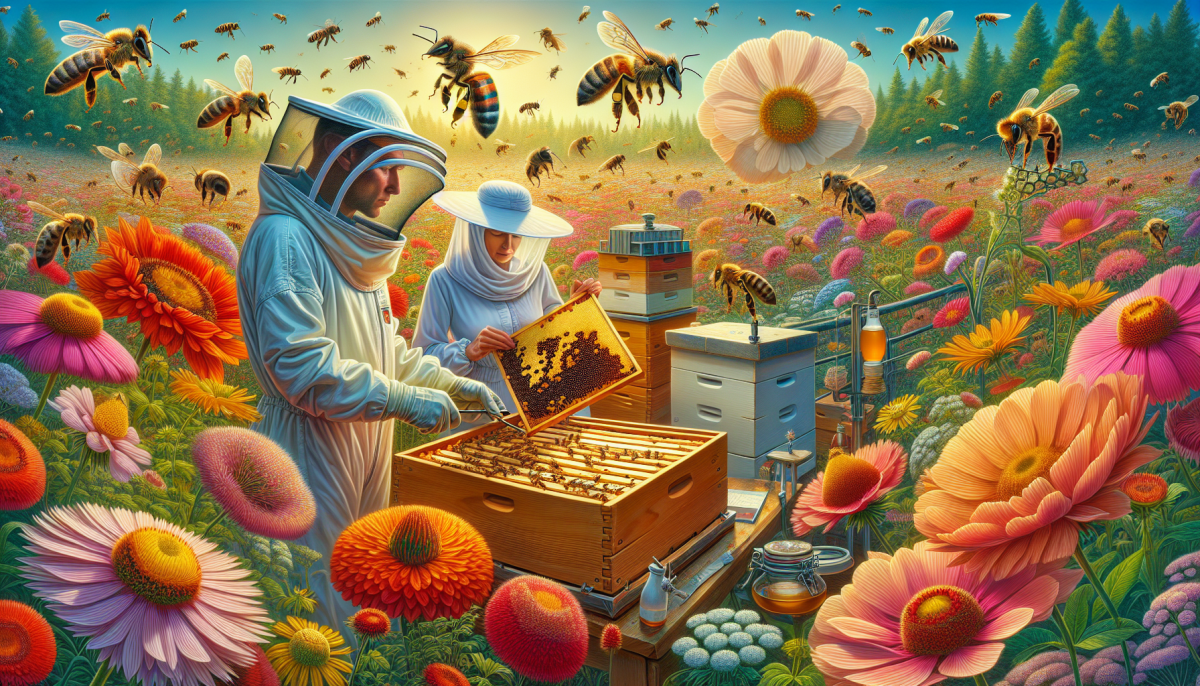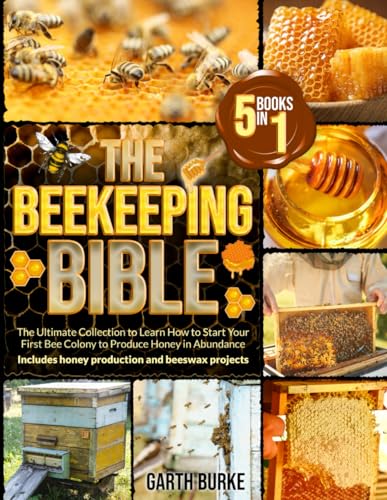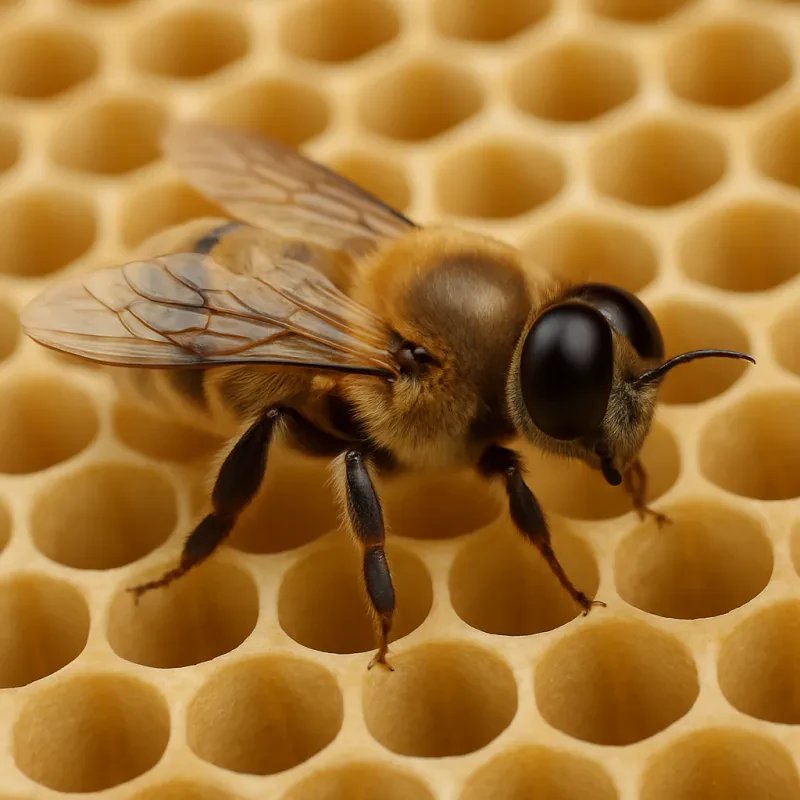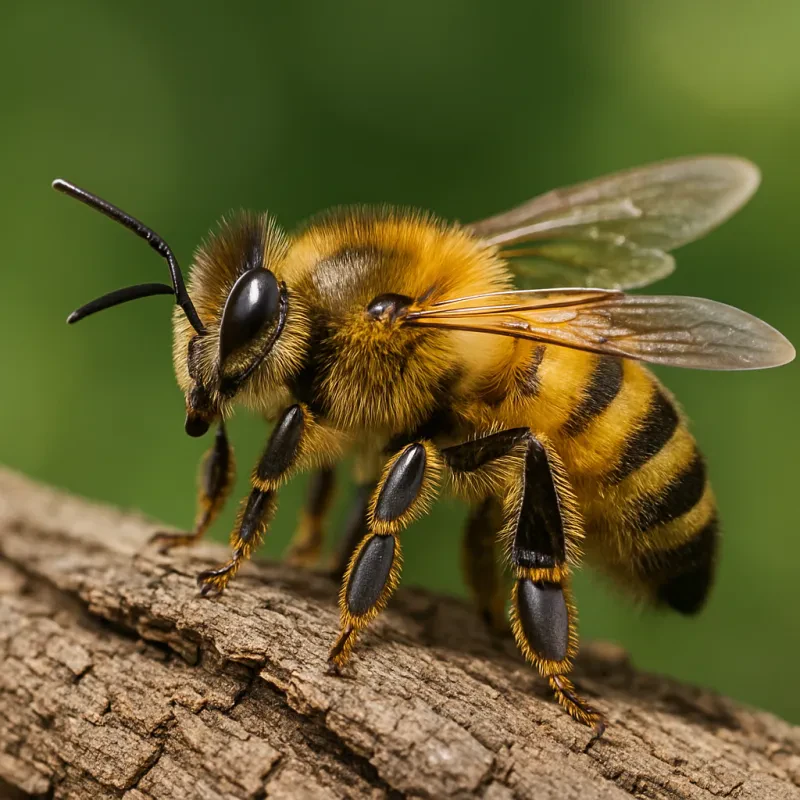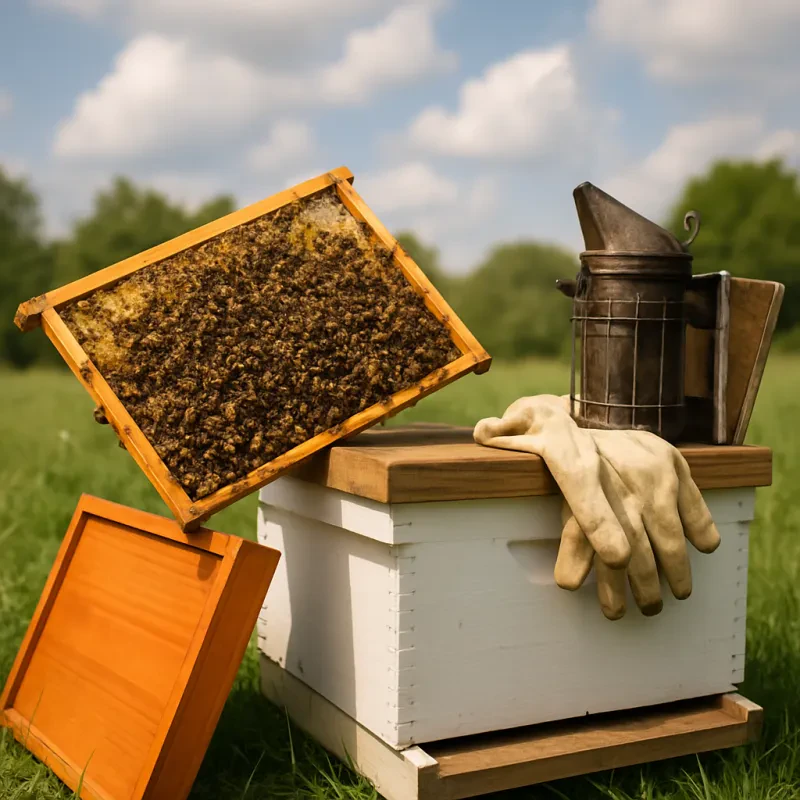Beekeeping Handbook - Expert Guide for Beekeepers
The ultimate resource to master the art of beekeeping and excel as a beekeeper
Product information
$29.95 $23.70
Product Review Score
4.52 out of 5 stars
46 reviewsProduct links
In the intricate web of ecosystems, certain species play pivotal roles that far exceed their physical size. Among these, bees stand out for their unparalleled contribution to pollination, an essential process for the survival of ecosystems and human agriculture. The practices of beekeeping and apiculture are dedicated to the maintenance, study, and cultivation of bee colonies, not only for the production of honey, wax, and other by-products but also for the critical environmental benefits they provide. This article delves into the nuances of beekeeping and apiculture, highlighting their significance and the multifaceted ways in which they benefit our world.
Beekeeping: An Overview
Beekeeping, also known as apiculture, from the Latin words 'apis' for bee and 'cultura' for cultivation, refers to the deliberate maintenance of bee colonies, typically in hives by humans. This ancient practice, which dates back millennia, encompasses the breeding of bees, hive management, and the extraction of honey and beeswax, alongside other by-products such as propolis and royal jelly. Beekeepers, or apiarists, manage colonies in a way that ensures the health and productivity of the bees, while also safeguarding them from pests and diseases.
The Art and Science of Beekeeping
Beekeeping is both an art and a science, requiring an understanding of bee biology and behavior, as well as skill in managing hives. Beekeepers must be adept at interpreting the needs and health of their bees, making timely decisions regarding feeding, medication, and the harvesting of bee products. This involves regular inspections of the hives, managing the space within to prevent overcrowding, and ensuring that the queen bee is healthy and productive. In temperate climates, beekeepers also prepare their colonies for winter, employing strategies to help them survive the colder months.
Apiculture: Beyond Honey Production
While beekeeping is often associated with honey production, apiculture encompasses a broader scope, including the role of bees in pollination and their impact on ecosystems and agriculture. Apiculture contributes significantly to biodiversity, supporting the growth of wild and cultivated plants that require pollination to reproduce.
Pollination and Global Food Security
Bees are among the most effective pollinators, playing a crucial role in the fertilization of many crops. It is estimated that a third of the food we consume relies on bee pollination. This includes fruits, vegetables, and nuts, highlighting the direct link between beekeeping, apiculture, and global food security. By maintaining healthy bee populations, apiculturists contribute to the sustainability of agriculture and the diversity of our diets.
Biodiversity and Environmental Health
Beyond agriculture, bees contribute to the health of natural ecosystems by facilitating the reproduction of a wide range of plants. This biodiversity supports not only various plant species but also the animals that rely on them, creating a ripple effect that sustains entire ecosystems. Apiculture, therefore, plays a vital role in preserving biodiversity, combating habitat loss, and supporting the resilience of natural ecosystems against environmental changes.
Challenges and Solutions in Apiculture
Despite its importance, apiculture faces significant challenges, including habitat loss, pesticide exposure, climate change, and the spread of pests and diseases like the Varroa mite. These factors can lead to colony collapse disorder, a phenomenon where bee populations plummet, threatening agriculture and ecosystems.
To combat these challenges, beekeepers and researchers are developing innovative solutions. These include breeding resistant bee strains, improving management practices to boost colony health, and advocating for environmentally friendly farming techniques that reduce pesticide use. Additionally, initiatives to restore habitats and create bee-friendly spaces in urban and rural areas are gaining momentum, providing much-needed forage and nesting sites for bees.
Apiculture's Contribution to Sustainability and Economy
The benefits of beekeeping and apiculture extend beyond environmental health, contributing significantly to local and global economies. The honey and beeswax market, along with other bee products, supports the livelihoods of millions of people worldwide. Furthermore, by bolstering pollination services, apiculture enhances crop yields, directly benefiting the agricultural sector and ensuring food security.
Beekeeping and apiculture are indispensable to our world, providing essential services that sustain agricultural productivity, preserve biodiversity, and support ecosystems. These practices embody a symbiotic relationship between humans and bees, one that requires careful management and respect for the natural world. As we face increasing environmental challenges, the role of beekeeping and apiculture becomes ever more critical, highlighting the need for concerted efforts to protect and promote healthy bee populations. Through education, sustainable practices, and policy support, we can ensure that bees continue to thrive, securing their invaluable contributions to our world for generations to come.
$19.97
4.35 out of 5 starsUltimate Beekeeping Guide: Learn to Start Bee Colony
Become a master beekeeper and start your own thriving bee colony with our ultimate guide
Product information
Product Review Score
Product links
